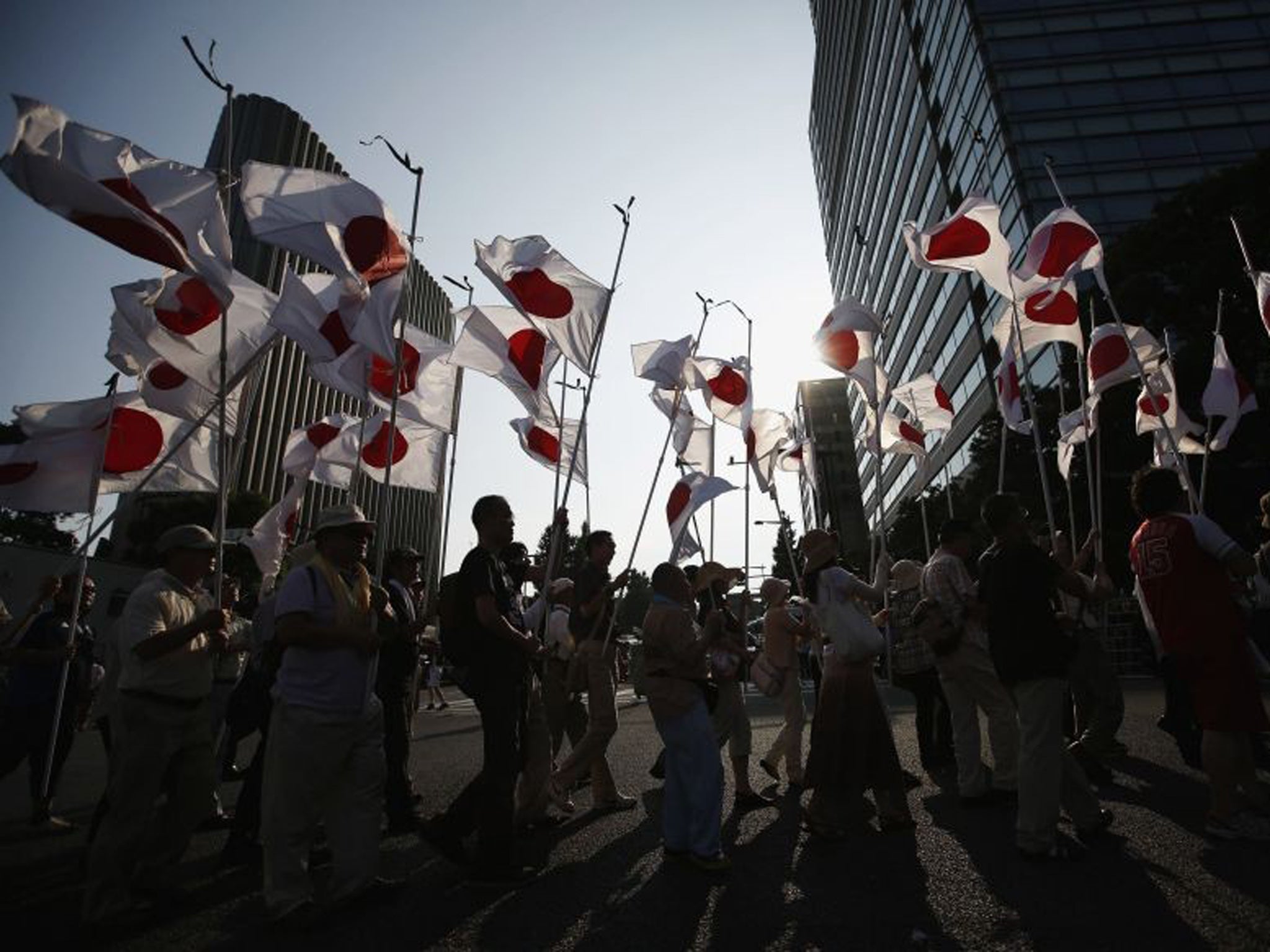Japanese prime minister Shinzo Abe skips visit to World War Two shrine in order to ease China tensions
Two Japanese ministers do visit controviersial memorial, prompting protests in China and South Korea

Your support helps us to tell the story
From reproductive rights to climate change to Big Tech, The Independent is on the ground when the story is developing. Whether it's investigating the financials of Elon Musk's pro-Trump PAC or producing our latest documentary, 'The A Word', which shines a light on the American women fighting for reproductive rights, we know how important it is to parse out the facts from the messaging.
At such a critical moment in US history, we need reporters on the ground. Your donation allows us to keep sending journalists to speak to both sides of the story.
The Independent is trusted by Americans across the entire political spectrum. And unlike many other quality news outlets, we choose not to lock Americans out of our reporting and analysis with paywalls. We believe quality journalism should be available to everyone, paid for by those who can afford it.
Your support makes all the difference.Japanese prime minister Shinzo Abe has indicated that he will not visit the Yasukuni Shrine, which commemorates Japan's war dead, on the 68th anniversary of the country's surrender in World War Two, in a move apparently designed to avoid inflaming tensions with neighbours China and South Korea.
Besides recognising soldiers killed during the Second World War the site also honours several convicted war criminals.
Previous visits by senior Japanese politicians, including a number of Prime Ministers have angered regional neighbours, who associate the shrine, in the heart of Tokyo, with the former colonial power's war-time aggression.
While he has not personally made a visit to the shrine since coming to office for a second time last year, Abe asked one of his aides to present an ornamental offering bought with his own money.
Two of his Cabinet members did pay their respects at the Shrine this morning, prompting China to summon the Japanese ambassador in Beijing to register an official protest.
The country's foreign ministry said that the visit by the Japanese ministers for internal affairs and the North Korea brief, Yoshitaka Shindo and Keiji Furuya,“seriously harms the feelings of the people in China.”
A shrine of Japan's indigenous Shinto religion, Yasukuni evokes bitter memories across Asia of Japan's colonial and wartime aggression. It honours 2.5 million Japanese war dead, including Class A war criminals such as Hideki Tojo, a Prime Minister during the war, who was executed in 1948.
North and South Korea marked the surrender anniversary today with ceremonies of their own celebrating their independence from Japan's 1910-1945 colonization of the peninsula. South Korean President Park Geun-hye, the nation's first female head of state, urged Japanese leaders to “show brave leadership in healing wounds of the past.”
In Seoul, the South Korean capital, women who had been forced to work in wartime brothels of the Japanese army, and their supporters, rallied outside the Japanese Embassy, demanding apologies and compensation.
Mr Abe attended the Yasukuni Shrine in October 2012 as leader of the opposition and has said that he regrets not visiting in person when he was previously the country's premier in 2006.
When asked if he would go this year, he told reporters, “Since it would become a political and diplomatic problem, I cannot tell you that.”
Abe joined Emperor Akihito at a ceremony at a Tokyo indoor arena where they bowed deeply before a backdrop of white and yellow chrysanthemums in paying respects for the war dead.
“I pray for world peace and our country's further prosperity,” Akihito said.
Past public opinion polls have shown majorities of those asked support visits to the shrine by Japanese leaders, though the shrine is not as popular as other major Shinto sites.
Japan has repeatedly apologized for its wartime actions, but the shrine remains a flashpoint nearly 70 years after Emperor Hirohito issued his proclamation surrendering to Allied forces on 15 August 1945.
Mr Abe's nationalist views have raised concern in the region. His support for revising Japan's pacifist constitution and raising the profile of its military are compounding the unease at a time of rising tensions over a cluster of uninhabited islands in the East China Sea claimed by both Japan and China.
Subscribe to Independent Premium to bookmark this article
Want to bookmark your favourite articles and stories to read or reference later? Start your Independent Premium subscription today.
Join our commenting forum
Join thought-provoking conversations, follow other Independent readers and see their replies
Comments